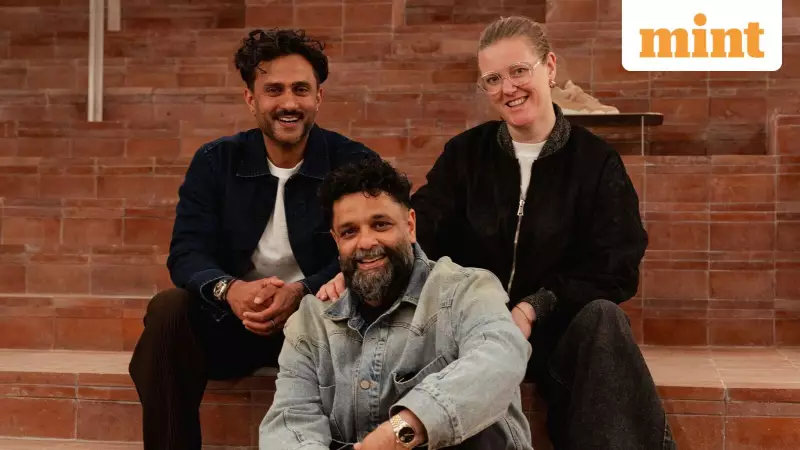
Indian streetwear pioneer VegNonVeg has marked a significant expansion milestone with the launch of its largest store yet in Hyderabad. The 4,200 square feet boutique located in Jubilee Hills represents the brand's fifth retail outlet in India and signals their growing presence in the country's fashion landscape.
The store opening brings together the brand's three founders - Anand Ahuja, Abhineet Singh, and Emilia Bergmans - who have been instrumental in shaping India's streetwear culture since launching VegNonVeg in 2016. The timing is particularly significant as the brand approaches its tenth anniversary in May 2026.
Strategic Expansion into Hyderabad
When questioned about their decision to choose Hyderabad for their biggest store, the founders revealed thoughtful strategic reasoning. Anand Ahuja explained that VegNonVeg carefully considers the pace of growth and doesn't enter cities merely because of market size. "We step in only when we feel we have something to say or contribute. The city has to inspire us too," Ahuja stated during the pre-launch interaction.
Abhineet Singh provided additional context, noting that Hyderabad already ranks as their fourth or fifth biggest market, making the expansion decision straightforward from a business perspective. The city's young, upcoming urban culture scene and consumer base aligned perfectly with the brand's target audience.
Understanding the Hyderabadi Consumer
The founders shared interesting insights about the Hyderabad fashion consumer during their market research. Ahuja contrasted the Indian market with more defined fashion scenes in cities like Amsterdam or London, noting that "in India, it's less defined - but that's what makes it exciting."
One surprising discovery came from their staff research, which revealed a strong subculture of Jordan collectors in Hyderabad. This finding highlights the city's potential for nurturing specialized streetwear communities that VegNonVeg aims to engage with and learn from directly.
Architectural Vision and Design Philosophy
The massive 4,200 square feet space wasn't merely a choice but a necessity according to the founders. Singh explained that "Hyderabad doesn't have small spaces" and the city naturally pushed them toward more ambitious retail concepts.
The store design, created by AIM Architecture, drew inspiration from the original property - a dilapidated 1970s bungalow surrounded by beautiful gardens. Abhineet Singh revealed that the terracotta veranda of the original structure inspired the ground floor design of the new store.
Emilia Bergmans described the architectural concept as "a stage" designed to create dynamic interactions between interior and exterior spaces. The prominent open staircase visible from both levels serves as a central feature, encouraging visitors to experience the space as a cultural clubhouse rather than just a retail store.
Looking Ahead to the Tenth Anniversary
With the tenth anniversary approaching in May 2026, the founders teased several exciting developments. Emilia Bergmans confirmed two global collaborations and one Indian collaboration in the pipeline, along with community initiatives and a commemorative book documenting their decade-long journey.
Anand Ahuja reflected on the current challenges in the Indian sneaker market, mentioning restrictions and policy changes. However, he views this period as a "coming-of-age moment for VNV" that will test their ability to establish a healthier business amid market shifts.
Abhineet Singh provided perspective on the brand's position within global streetwear culture, noting that while VegNonVeg celebrates ten years, streetwear culture globally is fifty years old. "We're still carving our niche in India. There's a long way to go," he acknowledged, indicating continued growth and evolution for the brand.
The Hyderabad store opening represents more than just retail expansion - it signifies VegNonVeg's commitment to building communities around streetwear culture across India. The founders emphasized their hope that the space becomes a gathering spot where fashion, self-expression, and community intersect, reflecting their original vision for the brand as a cultural movement rather than merely a business.





